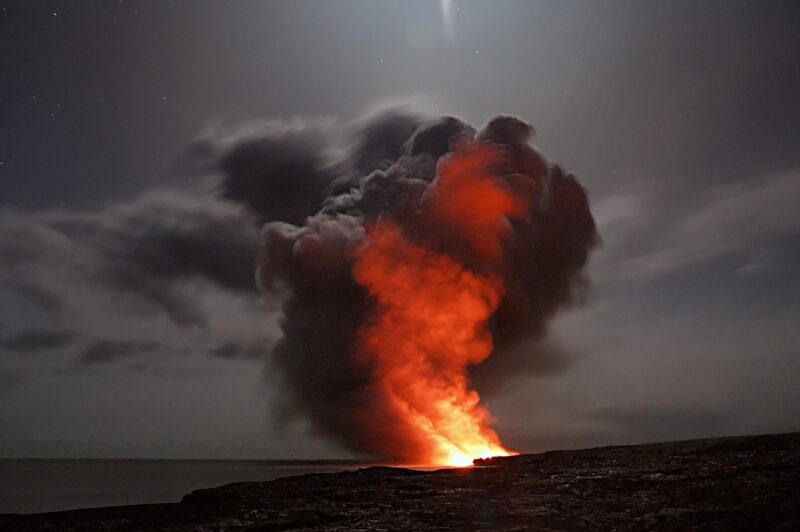How Volcanoes Have Shaped the Geography and Mythology of Cultures
November 16, 2024

Volcanoes are among the most powerful forces of nature, capable of reshaping entire landscapes in a matter of moments. Their explosive eruptions and flowing lava have a profound impact not only on geography but also on the cultures that inhabit the regions surrounding them. In this article, we will explore how volcanoes have influenced both the physical world and the mythology of various cultures throughout history.
1. The Physical Impact of Volcanoes
Volcanoes have been instrumental in the formation of numerous landscapes across the globe. From the towering peaks of the Andes to the idyllic islands of Hawaii, volcanic activity has played a significant role in shaping our environment. Here are some key ways volcanoes have influenced geography:
- Land Formation: Volcanic eruptions produce lava flows and ash deposits that can create new landforms, such as islands and mountains. The Big Island of Hawaii is a prime example, formed entirely by volcanic activity.
- Soil Fertility: The ash produced by erupting volcanoes is rich in minerals. This makes the surrounding soil extremely fertile, leading to lush vegetation and thriving agricultural communities. Countries like Italy benefit from the fertile soils of regions like Campania, thanks to Mount Vesuvius.
- Water Resources: Volcanoes can create natural dams through lava flows, forming lakes and reservoirs. For example, Crater Lake in Oregon is the result of a collapsed volcanic caldera filled with water.
2. Volcanoes in Mythology and Culture
The impact of volcanoes goes beyond their geological effects—they also permeate the myths, legends, and religions of cultures around the world. The often cataclysmic nature of volcanic eruptions has led various societies to attribute spiritual or supernatural significances to these natural phenomena.
- Fire and Fertility Gods: In many cultures, volcanoes are associated with gods of fire and fertility. For instance, in Hawaiian mythology, Pele is the goddess of volcanoes and often portrayed as a powerful force who creates land through her fiery eruptions.
- Cultural Identity: Many communities identify themselves with their local volcanoes, viewing them as symbols of strength and resilience. For example, residents near Mount Fuji in Japan celebrate its beauty, and it represents a source of national pride.
- Warnings from the Gods: Eruptions have been interpreted as divine messages or signs of displeasure. The eruption of Mount Vesuvius in 79 AD, which destroyed Pompeii and Herculaneum, was seen as a serious omen by the Romans, aligning with their belief system about gods’ willingness to intervene in human affairs.
3. Volcanoes and Their Role in Human Survival
While volcanic eruptions can be devastating, they have also played a crucial role in human survival and adaptation. Communities often learn to live in harmony with these natural giants, utilizing their resources to thrive.
- Resource Richness: Many volcanic areas are rich in natural resources like minerals, geothermal energy, and freshwater. Countries like Iceland harness geothermal energy not only to power homes but also for greenhouses, allowing agriculture even in harsh climates.
- Tourism Opportunities: Volcanoes attract millions of tourists each year, providing economic opportunities for communities. For example, Mount St. Helens in Washington State is a major tourist attraction that offers educational resources on geology and ecology.
- Fostering Innovation: The challenges posed by living near volcanoes have led to innovative engineering solutions, such as better warning systems, evacuation protocols, and improved building techniques designed to withstand eruptions and ash fall.
4. Notable Volcanoes and Their Myths
To illustrate the link between volcanoes and cultural mythology, let’s take a look at a few notable volcanoes and the myths associated with them:
- Mount Fuji (Japan): Considered a sacred site, Fuji is associated with various Shinto deities. It’s a symbol of beauty, strength, and is often seen as a protective spirit over the land.
- Kilimanjaro (Tanzania): The Maasai people consider Kilimanjaro a sacred mountain, and their folklore includes stories of gods using the mountain to communicate with their ancestors.
- Mount Olympus (Greece): The legendary home of the Greek gods, Mount Olympus was believed to be the divine realm from which gods ruled over humanity.
5. Volcanoes as Changing Forces
Volcanoes continue to be dynamic agents of change, posing risks but also providing opportunities. Understanding their effects can lead to better preparedness and adaptation by human communities:
- Science and Monitoring: Advances in technology allow scientists to monitor volcanic activity, providing invaluable data to mitigate risks associated with eruptions and prevent loss of life.
- Cultural Resilience: As climates change and populations grow, understanding the historical impacts of volcanoes on cultures helps communities develop resilience strategies that respect both the land and traditions.
Conclusion
The impact of volcanoes extends far beyond the geological transformations they cause. Through their influence on landscapes, communities, and mythology, volcanoes have greatly shaped humanity’s relationship with nature. They serve as enduring reminders of nature’s power, resilience, and the intricate ties between the earth and cultural identity. Understanding these relationships can empower us to coexist with these natural giants more sustainably as we move forward in our existence on this planet.
Whether revered as gods, feared as omens, or embraced as symbols of strength, volcanoes remain a pivotal part of the human story, underpinning our geography, cultures, and experiences on Earth.







